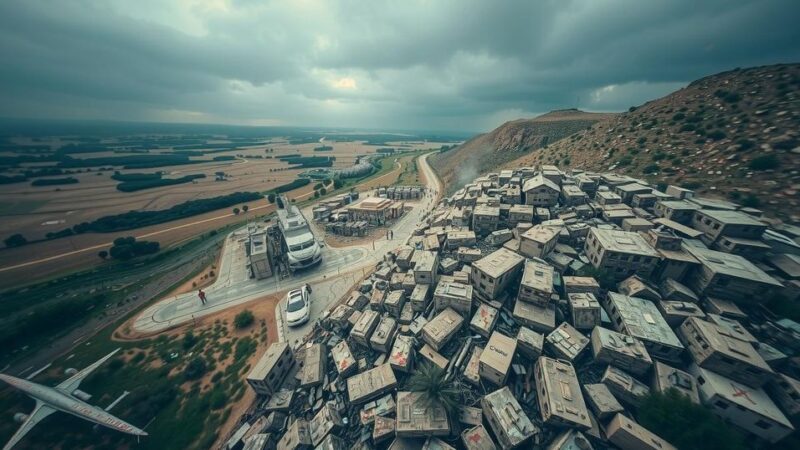Iran has proposed to limit its uranium stockpiles to mitigate pressures from Western powers seeking to pass a resolution over its non-compliance with IAEA guidelines. The country’s recent actions have raised doubts among Western diplomats, who perceive these overtures as strategic rather than genuinely cooperative. As the situation evolves, the upcoming IAEA board meeting is poised to be pivotal for Iran’s nuclear future and international diplomatic relations.
Iran has expressed a conditional offer to limit its uranium stockpile near weapons-grade levels, aimed at dissuading Western powers from pursuing a resolution against it at the forthcoming quarterly meeting of the International Atomic Energy Agency (IAEA). This development emerged amidst ongoing diplomatic tensions, where Iran’s Foreign Minister conveyed to his French counterpart that pressure to enforce a resolution would jeopardize cooperation established between Iran and the IAEA. In particular, a report indicated Iran’s willingness to refrain from increasing its stock of uranium enriched to 60 percent purity, a level just shy of the 90 percent threshold deemed sufficient for nuclear weapons. Western diplomats view Iran’s overtures skeptically, believing they represent a tactical maneuver to avert condemnation. Specifically, Iran’s stock of uranium enriched to 60 percent had risen recently and was estimated to be around 182.3 kg as of late October, enough for the potential manufacture of four nuclear weapons if further processed. Moreover, the IAEA has noted that Tehran has initiated preparations but has sensed a slowdown in the pace of enrichment, outlining an ongoing dilemma regarding compliance with international requirements. Furthermore, the reports from the IAEA highlighted Iran’s consideration to permit additional trained inspectors, although stipulations restrict them from being individuals previously barred from the country. Despite this, the anticipated resolution led by Britain, France, Germany, and the United States is expected to pass soon, reflecting a concerted effort to exert pressure on Iran to participate in renewed negotiations regarding its nuclear activities, especially in light of the upcoming expiration of restrictions from a 2015 agreement. The urgency for resolutions and ongoing discourse is heightened as the final IAEA board meeting before the inauguration of President-elect Donald Trump approaches, further complicating an already intricate diplomatic landscape.
The ongoing nuclear negotiations between Iran and Western powers, particularly involving the IAEA, have been characterized by complexity and tension. Following the breakdown of the 2015 nuclear deal, which imposed comprehensive restrictions on Iran’s nuclear program, Iran has progressively expanded its uranium enrichment activities. The IAEA’s role is crucial, as its reports determine the trajectory of international diplomacy and compliance regarding nuclear non-proliferation efforts. The need to address unexplained uranium traces and extend oversight over Iran’s nuclear activities has further complicated these discussions. The geopolitical context is critical, with the incoming U.S. administration signaling potential shifts in policy towards Iran, which may influence the future of these negotiations. As the situation evolves, there is a pronounced urgency for diplomatic engagement to prevent escalation and ensure compliance with international standards.
In summary, Iran’s conditional offer to limit its uranium enrichment stockpile reflects the ongoing strain in its relations with Western powers and the IAEA. While Tehran has initiated measures to regulate its uranium stock, skepticism surrounds these claims due to their timing amidst impending resolutions aimed at addressing Iran’s lack of transparency. As international diplomats prepare for a critical vote, the broader implications for nuclear negotiations and regional stability hinge on the outcomes of these deliberations.
Original Source: www.arabnews.com




